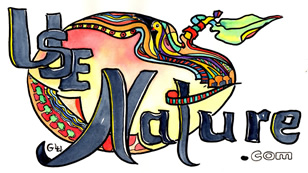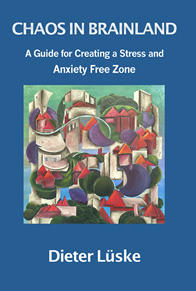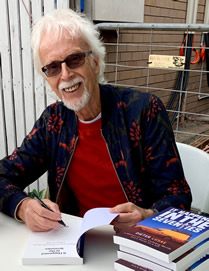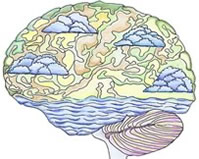useNature.com ... Brain Plasticity Therapy Concepts
Article: Brain Plasticity - Habits and Brain Change
Brain Plasticity - Brain Change and Habits
Article by Dieter Luske N.D.-D.C.H.-D.M.H.-D.H
Author of It happened in the seventies
|
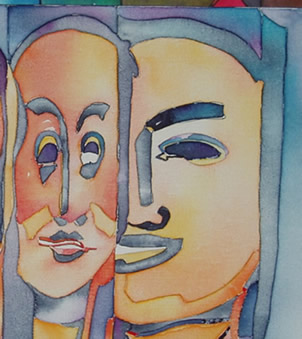 If you do what you always do, you will get what you always get.
If you do what you always do, you will get what you always get.
... yes, we are all creatures of habits.
I don't mean that in a bad way, as we can develop both good and bad habits. Indeed, habits can be a fantastic support to lead a healthy and creative life.
What is your estimate; do people create more good, or bad habits?
Somehow, the bad habits seem to prevail, interestingly enough, bad habits usually don't need much effort, whereas good habits need to be worked on and cultivated.
As you can imagine; Brain Plasticity, the ability for the brain to change, is initiated by active, constant, and repetitive stimuli habits.
Your "Thoughts" are a source of stimuli, therefore, watch your thought processes, negative thoughts or worries may contribute to undesirable brain changes, and bad habits unfortunately can add towards stress, pain, inflammation or indeed can be part of the cause of a possible health problem.
Brain plasticity therapy concepts are wonderfully helpful if applied according to the therapy protocols, however the uninvited possibilities of subconscious self sabotage, caused by "negative" habits can change the brain as well, unfortunately into a destructive way.
Part of any therapy strategy therefore is the "elimination" of possible bad or "interfering" habits, and negative thought processes, in exchange with positive based thought processes.
How to identify a possible bad habit?
First of all, write down bad habits you are aware of, maybe you are into junk food, don't exercise, drink and smoke, not enough sleep, too much self-induced stress, worry too much, or indulge and engage in negative thought processes, the list is endless. Check out what you can change, and how to turn some of your vices into positive habits, by example, a walking exercise habit may be essential for your recovery.
Secondly, lets dig a bit deeper, and ask and answer the following questions:
If you do what you always do, you will get what you always get.
Do you like what you always get?
Keep doing whatever you are doing to keep the positive outcomes.
However, for those things, you don't like getting, make sure you develop strategies to change what you are doing. Get something new, something positive and supporting you, your lifestyle and health goals.
What is it, you don't like getting?
Now, investigate your habits, behaviours, thought processes and attitudes around that part you don't like getting, and make sure, that there is nothing that could negatively interfere with your health.
Investigate, how you always react to pain or your specific issue.
Pain, by example, can become a learned problem, a reaction "habit". Your brain may have changed in such a way, that the pathways that reflect the pain have become that deep and wide ( stuck in a groove), that pain is experienced, even so the pain response may not be needed anymore.
Initial, acute pain is a beneficial alarm bell, something is wrong, and you better do something to address the cause of it.
Evaluate you reaction to pain or your problem, how do you handle it? Come up with new ways to form new neurological pathways, and make sure they are the ones you want, and which support you.
Habits are often hard to pinpoint, because you may not even be aware that "something" is a habit.
As Norman Doidge, MD. pointed out in one of his books, the goal is not to change the pain, as controversial as that may seem, the goal is to change the brain.
My favourite attitude and treatment strategy is always directed towards supporting something, rather than fighting something.
With other words, don't fight the pain, support your body and your health instead.
Therefore the main goal is: To change the brain, in order to heal.
The basic rule is; in order for the brain to change, you, your behaviour or reactions have to change first.
Article by:
Dieter Luske - www.dieterluske.com
...next, expanding on: Brain Plasticity Stimuli, thought processes, and how not to worry yourself sick
... or go back to the main Brain Plasticity Menu
* Disclaimer - Any general advice given in any article should not be relied upon and should not be taken as a substitute for visiting a qualified medical Doctor.
Dieter Luske - Author
Certified Human
Sci-Fi Crime Novel
Society has been quietly infiltrated by machines that mimic human appearance.
Overcome
Chaos in Brainland
Dieter Luske on FBBy the Editor of useNature:
Buy Now
It happened in the seventies
An intriguing story of personal risk-taking, self-discovery and profound change.
Dieter Luske - Writer
Happy Brain - No Pain
© 1998 - 2025 useNature.com: Australia - Dieter Luske - Writer - Creative Lifestyle Portal - Natural Holistic Health - Books & Art
Site Map - Terms / Privacy | Free Alpha Music | Natural Links |
